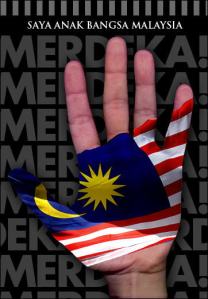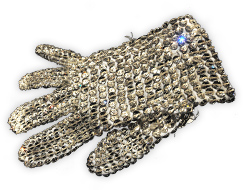
SHAH ALAM, 6 July 2009: The High Court here gave jurisdiction to the Syariah Court to determine if art director Mohan Singh a/l Janto Singh was a Muslim at death, despite his Sikh family's dispute of his conversion.
Judge Rosnaini Saub said the civil court had no jurisdiction to hear the matter based on the Selangor State Enactment and the Federal Constitution's Ninth Schedule.
Both laws state that the syariah court has jurisdiction over persons professing Islam and matters that include declaring whether a deceased person was a Muslim or otherwise at the time of death.
With this ruling, the High Court dismissed an application by Mohan's family challenging the Sungai Buloh Hospital's decision to withhold his body from them pending confirmation by the Selangor Islamic Council (Mais) on his religious status.
The High Court also dissolved its own injunction issued on 1 June 2009 to stop the hospital's release of the body to any party pending a decision on jurisdiction.
Mais will now take possession of Mohan's body from the hospital for burial according to Islamic rites. He will be buried at the Sungai Buloh Muslim cemetery today.
The court also rejected a request by the family's lawyer, Rajesh Kumar, for a stay of the decision pending an appeal to the Court of Appeals. Despite the rejection, Rajesh said he would file an appeal in Putrajaya today.
Mohan's family, comprising his step-father and three sisters, were silent when Rosnaini announced her decision. One of the sisters began crying softly.
However, the family was allowed to take the body to their home in Selayang to pay their last respects before they had to hand it over to Mais later, Rajesh said after the court announced its judgement this morning.
Certificate of conversion accepted
Judge Rosnani decided that Mohan's conversion certificate was acceptable, notwithstanding the dispute by his family.
She found that the purported conversion in 1992 to be a "highly disputed question of fact", but also said that "the applicants' averment that they are not aware of the deceased's conversion to Islam does not mean that the conversion did not take place."
"It is unfortunate that the deceased [did] not [tell] them," she said.
Since the court found that the certificate's existence was "sufficient proof" that he had converted, Rosnaini said that Mohan was therefore a Muslim. His Muslim name, according to the certificate, was Mohammad Hazzery Shah Mohan Abdullah.
She also said that even though the Penang Administration of Muslim Law Enactment 1959, which governed Mohan's conversion in 1992, did not have a provision to regard a conversion certificate as conclusive, it did not mean that the court could not accept the document.
She said the certificate was issued as an administrative practice to record conversions to Islam, and "in [the] absence of any evidence that the certificate is a forgery or was fraudulent, there is no reason why this court should not accept it as proof of conversion".
Lifestyle versus the law
Mohan's family had disputed his conversion through affidavits filed by one of his sisters, Baldi Kaur a/p Janto Singh, who said Mohan had always lived in Selangor. His conversion certificate states that he converted in Penang.
Baldi Kaur also said the family had no knowledge of his conversion as Mohan had lived like a Sikh even after 1992. He married a non-Muslim who bore him a child who was given a Punjabi name. In his marriage register and in his child's birth certificate, he maintained his Punjabi name and Sikhism as his religion.
He also performed Sikh funeral rites for his mother. And there was no change in his identity card details after his purported conversion.
Judge Rosnani said that even if a convert's lifestyle was inconsistent with that of a Muslim's, it "does not alter his status as a Muslim in the eyes of the existing law".
She ruled that even though Mohan converted in Penang, the Selangor enactment deemed anyone who was registered anywhere else as a Muslim a convert in the state of Selangor unless the syariah court declared otherwise.
She also rejected the submission by the family's lawyer that Mohan's conversion was never registered. She cited a letter from the Penang Islamic Religious Affairs Department dated 25 May 2009, the date of Mohan's death, confirming that he had converted to Islam and was registered in Penang.
Case law
Referring to the case law raised during the arguments on jurisdiction, Rosnaini said that even if not all parties to a dispute were Muslim, it did not mean that the civil court had jurisdiction to hear the matter.
She said this was especially so if the subject matter was within the domain of the syariah court, such as, in this case, the question of whether Mohan died a Muslim.
She said Article 121(1A) of the Federal Constitution prohibits the civil court from interfering in such a matter.
"Therefore, it cannot be a correct proposition of the law when the applicants' counsel submitted that the civil court shall have jurisdiction over the subject matter because the applicants are non-Muslim," she said.
During submissions, Mohan's family's lawyer had argued based on the case of Latifah Mat Zin v. Rosmawati Sharibun & Anor, in which the judge decided that all parties to a dispute must profess Islam in order for the dispute to be heard in the syariah court.
Where do they go?
Rosnaini acknowledged that Mohan's family had neither recourse in the syariah court because they were non-Muslims, nor in the civil court because it had no jurisdiction over the subject matter of Mohan's religious status.
To this, she said the matter had to be resolved by lawmakers and not by the courts.
She cited Tun Abdul Hamid Mohamed, who was the Federal Court judge in the Latifah Mat Zin case, who, in his judgement said that since neither court had jurisdiction based on the state and federal laws which created them, it was up to the legislators to remedy the situation.
"Either court obtains its jurisdiction from statute, not from the fact that the other court does not have jurisdiction over the matter. ...Where can the applicants go in such a scenario?...It is not the court's function to remedy it," Rosnaini said, quoting Abdul Hamid.












 KUALA LUMPUR, July 13 — The Police Force Commission, which is constitutionally responsible for the appointment and emplacement of members of the police force, has backed a second extension of the service of Tan Sri Musa Hassan as the country’s Inspector-General of Police.
KUALA LUMPUR, July 13 — The Police Force Commission, which is constitutionally responsible for the appointment and emplacement of members of the police force, has backed a second extension of the service of Tan Sri Musa Hassan as the country’s Inspector-General of Police.
 Since January this year, a group of like-minded people who first hooked up through cyberspace and then met up in real time, have been working on the Saya Anak Bangsa Malaysia initiative.
Since January this year, a group of like-minded people who first hooked up through cyberspace and then met up in real time, have been working on the Saya Anak Bangsa Malaysia initiative. 
 Expressing disappointment that the state government failed to fulfill any of his three demands outlined last week, Hindraf leader P Uthayakumar said the movement would now turn the screws to compel the Penang government to protect the villagers' interests.
Expressing disappointment that the state government failed to fulfill any of his three demands outlined last week, Hindraf leader P Uthayakumar said the movement would now turn the screws to compel the Penang government to protect the villagers' interests. The village's 300 residents now face a court eviction order after Aug 2 to pave way for a lucrative condominium project called Oasis.
The village's 300 residents now face a court eviction order after Aug 2 to pave way for a lucrative condominium project called Oasis.